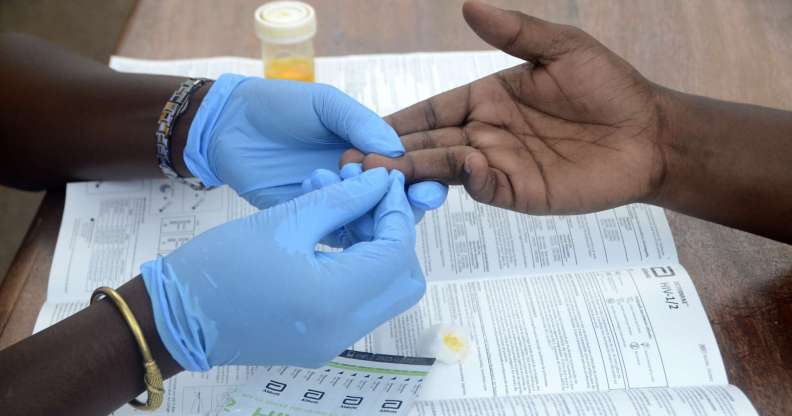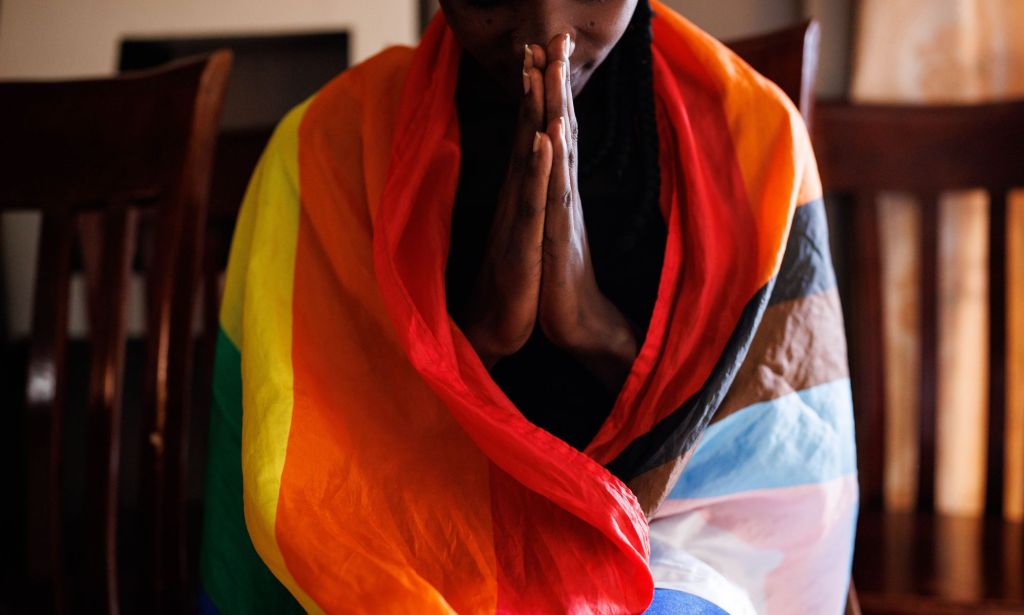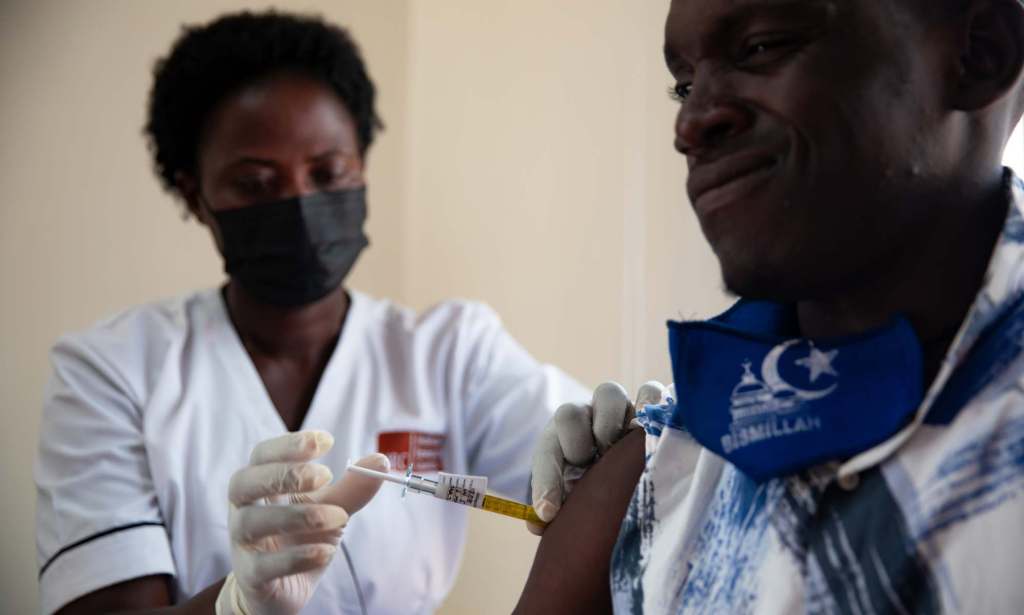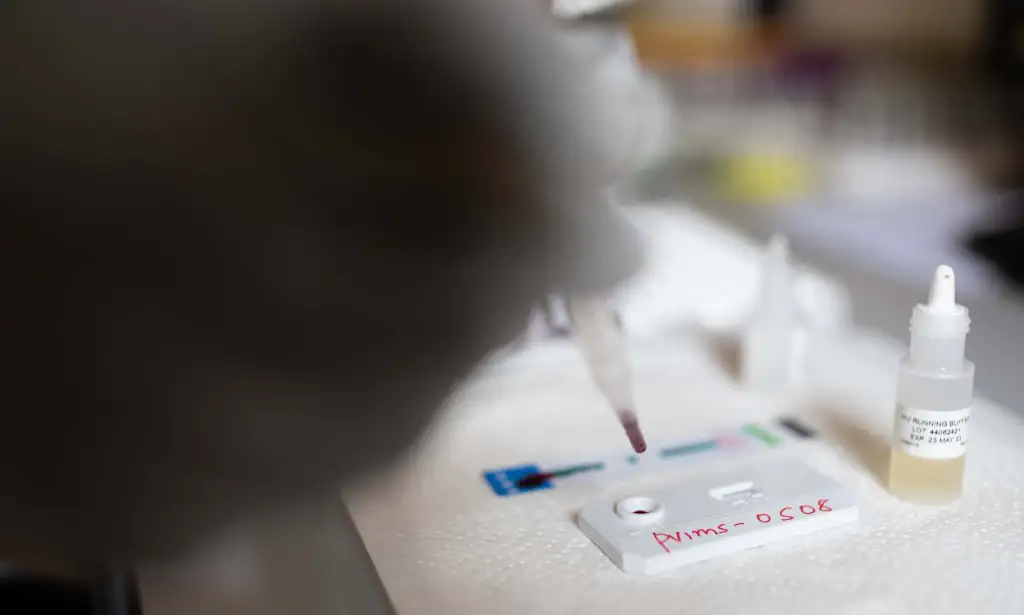Uganda’s Anti-Homosexuality Law could pose major threat to HIV prevention

Uganda’s Anti-Homosexuality Act could pose a threat to the country’s HIV prevention efforts. (Getty Images)
Uganda’s heavily criticised Anti-Homosexuality Act could pose a major threat to the country’s efforts to prevent the spread of HIV.
When the Anti-Homosexuality Act was enacted last year, the immediate dangers were obvious.
The law directly put LGBTQ+ people in danger by criminalising consensual same-sex relations. It also puts allies in danger by punishing anyone who “knowingly promotes homosexuality” by hiring, housing or helping LGBTQ+ individuals.
The most obvious danger it poses is its introduction of the death penalty for anyone found guilty of so-called “aggravated homosexuality”, which can mean anything from having sex with a vulnerable person to having sex while HIV positive.

But, months after the act was signed into legislation by President Yoweri Museveni, other dangerous implications are coming to fruition.
A new report from the New York Times has detailed the direct impact that the Anti-Homosexuality Act is having on the spread of HIV.
Alongside countries like the Republic of South Africa, Kenya, Nigeria and Tanzania, Uganda has been a leading country in HIV research and prevention.
Last August, a promising Uganda-based clinical trial for HIV vaccines entered its final stages. Although the trial was brought to a halt in December when researchers concluded it was not working, developers pledged to keep pushing forward until a HIV vaccine is developed.
That goal could be gravely impacted by the Anti-Homosexuality Act, which demands that citizens report anyone suspected of “aggravated homosexuality.”

Researchers and scientists who have been contributing to HIV studies and clinical trials are now required to reveal the identities of their study participants.
“It’s troubling from a research and academic perspective, and troubling from a scientific perspective to actually develop the medicines and tools we need to confront disease epidemics in the future,” US Ambassador to Uganda William W. Popp told the New York Times.
Not only will the act have a direct impact HIV research in Uganda, but it will likely contribute to a significant spread now that patients are avoiding necessary treatment for fear of being arrested.
According to a UN report, gay and bisexual men living in countries that criminalise homosexuality are 12 times more likely to be living with HIV than those living elsewhere.
Already in Uganda, dozens of healthcare providers and patients have been arrested for either being or assisting a person with HIV, the publication reports.
Of the HIV patients that haven’t been arrested, hundreds have dropped contact with HIV clincs that remain open, for fear of being prosecuted.
The New York Times reports that, because some HIV patients who have ceased treatment are sex workers, virus levels are likely to rise.

Mulago Hospital in Kampala has one of the largest clinics for treating sexually transmitted diseases in the Ugandan capital.
Dr Afunye Anthony Arthur told the paper that the clinic, which previously treated over 100 LGBTQ+ patients per day, now sees fewer than half come in.
Despite global backlash to the Anti-Homosexuality Act, Ugandan officials have made it clear that they have no intention of dropping it.
President Museveni has previously accused LGBTQ+ citizens of having a “type of sickness”, and called on other African nations to “save the world” from homosexuality which he said was “very dangerous for humanity.”
When the United States responded to the law by imposing sanctions on Ugandan officials, the African country’s State Minister for Foreign Affairs, Henry Okello Oryem responded by accusing the US of pushing an “LGBT agenda.”

